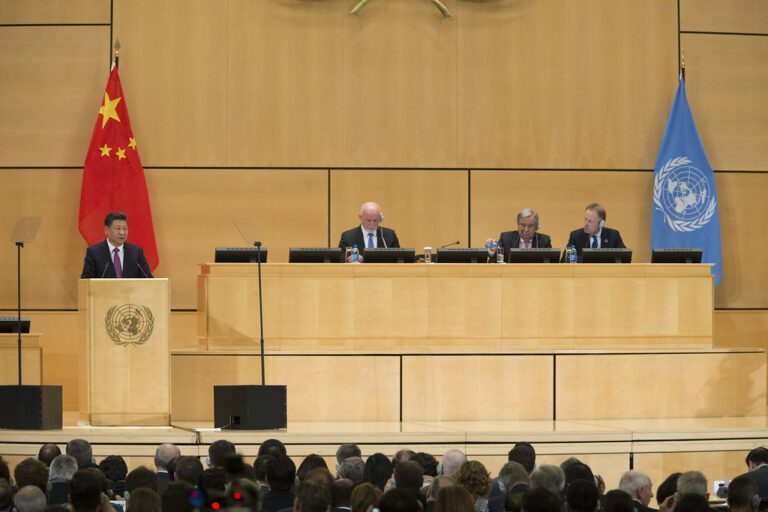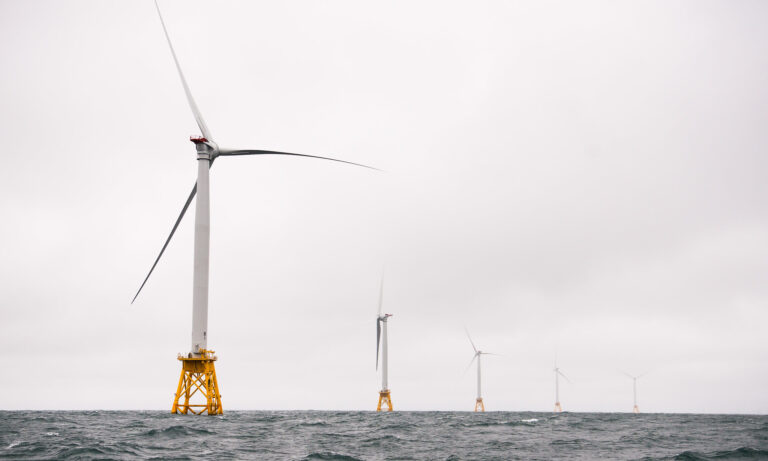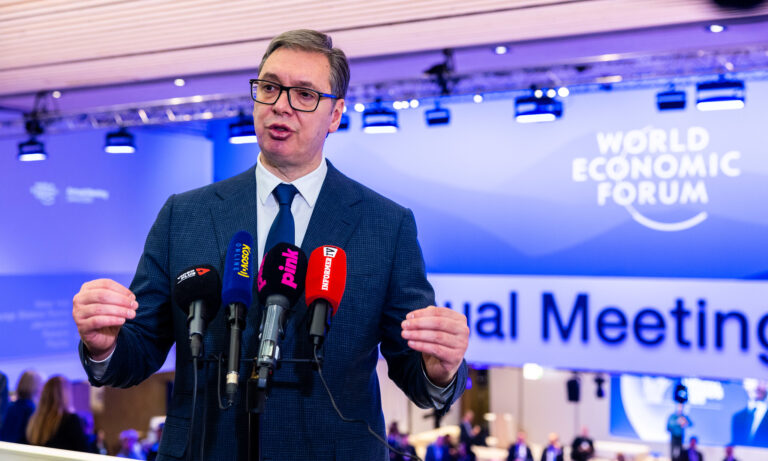Fortifying 5G Networks in North Macedonia: The Need for Western Partners

On September 10, 2020, only ten days into his second term as leader of the government, the Macedonian Prime Minister Zoran Zaev met with Zhang Zuo, the Ambassador of the People’s Republic of China in North Macedonia. During the meeting, Zaev expressed his government’s readiness for cooperation, especially in economic terms.
A follow-up meeting took place shortly after, this time between Zaev’s first Deputy Artan Grubi and the Chinese Ambassador Zhang. The two officials talked about strategic electronic communications, including the construction of the 5G network in light of North Macedonia’s NATO membership obligations. Immediately after the meeting, the United States Embassy in Skopje, in an atypical way, came out publicly and warned that “the Chinese companies, such as Huawei and ZTE cannot be trusted”, citing threats to national security, as well as privacy, intellectual property, and human rights violations. President Stevo Pendarovski but also Zaev himself, followed-up with similar statements, saying that North Macedonia will have to align with NATO communication security protocols.
A month later on October 23, North Macedonia and the United States of America signed a memorandum of understanding on the security of 5G technologies. Calling upon the 2019 Prague 5G Security Conference Proposals, the two countries jointly emphasized the importance of cooperating with trusted 5G network suppliers, thus protecting the 5G infrastructure from “unauthorized access or interference”.
With this memorandum, the country joined the group of 27 NATO allies who, under the auspices of the US-led ‘Clean Network’ Initiative, aim at “addressing the long-term threat to data privacy, security, and human rights posed to the free world from authoritarian malign actors, such as the Chinese Communist Party (CCP)”. By signing the MoU, North Macedonia further aligned with the shared principles on 5G security also outlined in the EU’s 5G cybersecurity Toolbox. As a result, the Macedonian parliament is expected to amend the Electronic Communication Law imposing stricter rules against pursuing 5G equipment from “untrusted vendors.” Currently, the amendments on the law are under review.
Huawei in North Macedonia and the 5G Peripeteia
Huawei has been present on the Macedonian market since 2010. The company opened its branch in North Macedonia on December 7, 2010, under the name “Huawei Technologies Macedonia DOOEL Skopje”. Ever since, Huawei has been a major actor in the information and communications technology sector, closely cooperating with the local authorities.
Top officials from the two largest political parties, VMRO-DPMNE and SDSM, have held meetings with the CEE and Nordic countries’ regional leadership of the company in the past, discussing opportunities for deepened cooperation in the ICT sector. Moreover, the former Prime Minister Nikola Gruevski himself visited Huawei’s China headquarters, as part of his 2015 visit to the country.
The company left a significant footprint in the education sector in North Macedonia as well. For instance, in 2016 and 2017, Huawei was tasked to realize the Chinese Government’s donation of computers in 27 schools in the capital Skopje, as well as the Faculty of Computer Science and Engineering aimed at modernizing the education system. Since 2016, the company, in cooperation with the Ministry for Public Administration and Information Society, has been selecting the best ICT students from North Macedonia and offering them the opportunity to participate in the “Huawei Seeds for the Future” program. The program is aimed at providing participants with an experience of the latest trends in the technology ecosystem in China as well as gaining knowledge of the Chinese culture.
In terms of the 5G network construction, there has not been officially confirmed information about network equipment coming from Huawei. However, it would be naïve to expect that the telecommunication giant will not be an interested party.
The Macedonian Agency for Electronic Communications initially announced public bidding on the 5G network construction by the end of 2020, but then proposed postponement for mid-2021. Meanwhile, the largest communication provider in the country – Telecom (owned by Deutsche Telecom with 35% of the shares owned by the Macedonian state), has recently initiated a procedure for purchasing 5G equipment. According to local media sources, Huawei was the top-ranked bidder. However, the bidding process has been put on hold as a result of the need to align with the country’s strategic orientation.
Even if this particular piece of information cannot be verified, it is unlikely that Huawei will win the bid, especially after North Macedonia joined the ‘Clean Network’ initiative and is working on amending the Law on Electronic Communication in accordance to the shared principles for 5G security.
Seeking Independence from Corrosive Capital
“The Western Balkans are part of Europe – and not just a stopover on the Silk Road” stated the President of the European Commission Ursula Von Der Leyen in her 2020 State of the Union speech. And with a good reason. The region has been experiencing increased inflows of Chinese capital in the last decade. In 2018, cumulative Chinese investments in North Macedonia have increased more than 100 times when compared to 2010, from €1 million in 2010 to €133 million in 2018. This makes China the second largest investor in the country ahead of the US and Russia, however, trailing significantly behind the EU. FDI coming from the EU for the same period of time has reached the level of €3.2 billion. Having said that, these calculations are not taking into account the Chinese largest “investments” in the two highways in North Macedonia, Kichevo-Ohrid and Miladinovci-Shtip, which now have reached a staggering $1.2 billion and represent a heavy burden on a country’s budget. Moreover, the opaque and non competitive selection of the main contractor ‘Sinohydro’, envisioned with the loan conditions provided by the Chinese Export-Import Bank, has left space for penetration of corrosive capital, ultimately resulting in construction errors and alleged wrongdoings.
The leverage that China has built in recent times will be used to downplay the importance of 5G security and the requirements North Macedonia needs to implement according to the obligation deriving from its membership in NATO and the EU accession process. Therefore, assistance from the Western partners and allies is much needed as the country lacks the necessary human and technical capacities to fully implement the 5G security principles and standards.
In addition to the previous warnings on China’s intentions in the region, Brussels believes it is of utmost importance for the Western Balkans “to strengthen resilience” by “ensuring the full adherence of any foreign-funded economic activity to EU values, norms and standards”, arguing that the “increasing business and investment activity by third countries … frequently neglects socio-economic and financial sustainability and EU rules … and may result in high levels of indebtedness, exclusion from the market of EU companies unable to compete…”
However, it remains a significant challenge for North Macedonia, and the Western Balkan countries for that matter, to seek economic independence from China in times when their economic development is under severe pressure from the COVID-19 pandemic. This challenge is additionally exacerbated by the fact that the EU does not provide credible assurances that will secure the region’s EU membership prospects, closely linked with the access to substantial, fresh, and non- refundable European funds. In this sense, enabling access of Western Balkan countries to EU structural funds, reserved for the EU member states, and linking them to measurable progress and tangible outcomes in the EU accession process would be a significant step forward.
Written by
Ivan Nikolovski
Ivan Nikolovski is a Researcher at the Centre for European Integrations within IDSCS. Nikolovski holds an MA in Political Science with a specialization in Comparative Politics. His areas of interest are divided societies, European integration, and international affairs.
Zoran Nechev
ZoranNechevZoran Nechev is a senior researcher and head of the Centre for European Integrations within the Institute for Democracy “Societas Civilis” - Skopje. His fields of academic and professional interest are EU enlargement, Europeanisation, the policy of conditionality, Western Balkans, justice, and home affairs.


